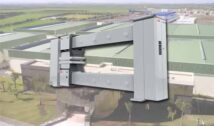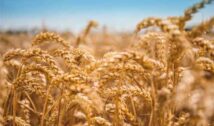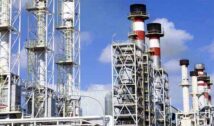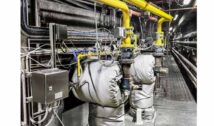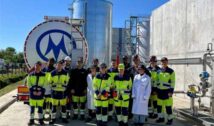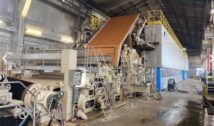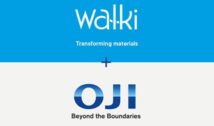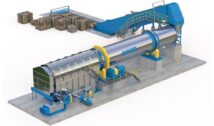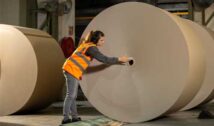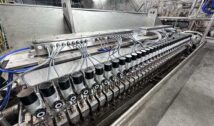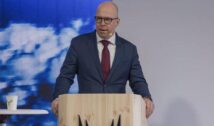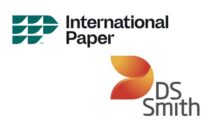
Today, the Scandinavian group has published its half-year report.
Q2/2023 (year-on-year)
- Sales decreased by 22% to EUR 2,374 (3,054) million.
- Operational EBIT decreased by 93% to EUR 37 (505) million.
- Operational EBIT margin decreased to 1.6% (16.5%).
- Cash flow from operations amounted to EUR 146 (404) million. Cash flow after investing activities was EUR -70 (247) million.
- The net debt to operational EBITDA ratio (last 12 months) was 1.7 (1.0). The target is to keep the ratio below 2.0.
- Operational ROCE excluding the Forest division (last 12 months) decreased to 10.7% (21.7%), the target being above 13%.
Q1–Q2/2023 (year-on-year)
- Sales were EUR 5,095 (5,852) million.
- Operational EBIT was EUR 271 (1,008) million.
- Operating result (IFRS) was EUR 5 (793) million.
Key highlights
- Stora Enso plans to permanently close down its Sunila pulp production unit in Finland, the De Hoop containerboard site in the Netherlands, one containerboard line at its Ostrołęka site in Poland, and the Näpi sawmill in Estonia.
- Stora Enso has taken the next step in driving a decentralised operating model and increased independency of the divisions by initiating change negotiations regarding the planned decentralisation and leaner Group functions.
- The above-mentioned planned restructuring actions are expected to improve operational EBIT by approximately EUR 110 million annually.
- One of the two paper machines at the Anjala site in Finland will be permanently closed down in Q4/2023.
- A new, high-tech corrugated packaging unit started operations at Stora Enso’s De Lier site in the Netherlands.
- The consumer board investment at the Oulu site in Finland is moving ahead according to schedule. Production is expected to start during 2025.
- Stora Enso launched a new framework for green and sustainability-linked financing to further integrate sustainability into its funding, and issued EUR 1 billion of green bonds. In addition, EUR 550 million bilateral loans were arranged to strengthen liquidity.
- Stora Enso’s ISS Corporate ESG rating improved from B- to B, the highest in the industry.
Outlook for the full year 2023
On 20 April this year, Stora Enso lowered its guidance for the full-year 2023 due to rapidly worsening market outlook and, as a consequence, materially lower earnings forecasts. The market outlook for 2023 remains uncertain with low short-term visibility, persisting high inflation, higher interest rates and low consumer confidence. Q3 will be another challenging quarter due to sequentially deteriorating market conditions for many segments. The tight wood market continues due to increasing energy wood consumption and the lack of wood imports from Russia. This impacts margins and contributes to the deterioration of the competitiveness of, especially, Stora Enso’s Finnish sites. Other variable costs are coming down from peak levels but are still higher compared to historic levels.
The headwinds in the first quarter of weak demand across most of the Group’s segments and customer destocking, continue. Based on the current macroeconomic and market specific challenges, Stora Enso assumes continued weakness in demand and volumes especially in its Packaging Materials, Wood Products and Biomaterials divisions, with no obvious signs of recovery yet.
Stora Enso’s President and CEO Annica Bresky comments on the second quarter 2023 results:
“The weak market demand further worsened in the second quarter. Our businesses are directly impacted by inflation and the consumers’ cost-of-living crisis, the drop in construction activity and customers continuing to reduce their inventories. Unfortunately, we see no imminent signs of improved market demand and we expect destocking to persist for most of our segments also in the second half of 2023. In this turbulent market we must adapt. We continue to focus on what we can impact and control: investing and restructuring to improve our future business profitability, cost-competitiveness and asset footprint, controlling our costs, and curtailing production to manage our own and customer inventories.
The demand slowdown continued for all our businesses except for Packaging Solutions and Forest division. For our largest divisions Packaging Materials, Biomaterials and Wood Products, we continue to experience destocking in the supply chain and weakening demand, in combination with margin pressure due to high input costs.
Some raw material costs have come down from their peak, however most of them, such as wood and chemicals, were still elevated compared to historic levels. For our Biomaterials division especially, we faced the fastest ever decline in global market pulp prices. A significant amount of new capacity is entering the market at a time when demand is low and the global market pulp inventories are on very high levels.
This has resulted in a very weak financial performance for the quarter and naturally we are disappointed. Group sales were 2,374 million euro, a year-on-year a decrease of 22%. The Operational EBIT decreased by 93% to 37 million euro with an EBIT margin of 1.6%. (…)
Our focus short term, is on delivering on our committed investment projects and improving our profitability: our cost leading consumer board production line at our site in Oulu, the integration of our De Jong Packaging acquisition including the ramp up of one of Europe’s largest and most modern corrugating sites in Netherlands, and the development and commercialisation of the innovative anode battery material Lignode. (…) »



